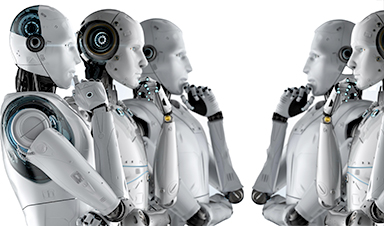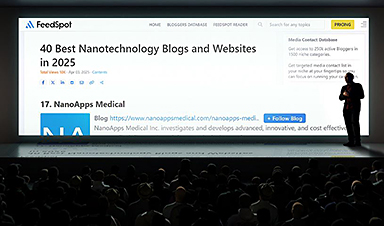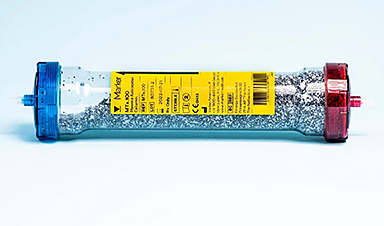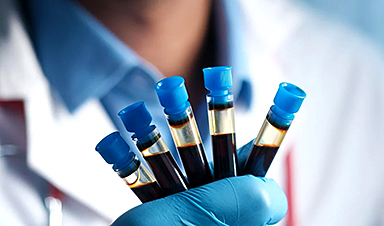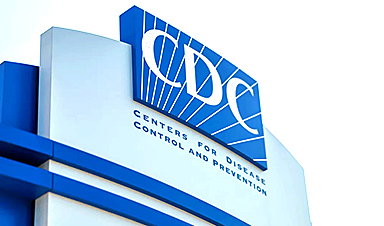From tailored Netflix recommendations to personalized Facebook feeds, artificial intelligence (AI) adeptly serves content that matches our preferences and past behaviors. But while a restaurant tip or two is handy, how comfortable would you be if AI-algorithms were in charge of your medical expert or new hire?
Now, a new study from the University of South Australia shows that most people are more likely to trust AI in situations where the stakes are low, such as music suggestions, but less likely to trust AI in high-stakes situations, such as medical decisions.
However, those with poor statistical literacy or little familiarity with AI were just as likely to trust algorithms for trivial choices as they were for critical decisions.
The study is published in the journal Frontiers in Artificial Intelligence.
Assessing responses from nearly 2,000 participants across 20 countries, researchers found that statistical literacy affects trust differently. People who understand that AI-algorithms work through pattern-based predictions (but also have risks and biases) were more skeptical of AI in high-stakes situations, but less so in low-stakes situations.
They also found that older people and men were generally more cautious of algorithms, as were people in highly industrialized nations like Japan, the US, and the UK.
Understanding how and when people trust AI-algorithms is essential, particularly as society continues to introduce and adopt machine-learning technologies. AI adoption rates have increased dramatically, with 72% of organizations now using AI in their business.
Lead author and human and artificial cognition expert Dr. Fernando Marmolejo-Ramos says the speed at which smart technologies are being used to outsource decisions is outpacing our understanding to successfully integrate them into society.
“Algorithms are becoming increasingly influential in our lives, impacting everything from minor choices about music or food, to major decisions about finances, health care, and even justice,” Dr. Marmolejo-Ramos says.
“But the use of algorithms to help make decisions implies that there should be some confidence in their reliability. That’s why it’s so important to understand what influences people’s trust in algorithmic decision-making. Our research found that in low-stakes scenarios, such as restaurant recommendations or music selection, people with higher levels of statistical literacy were more likely to trust algorithms.
“Yet, when the stakes were high, for things like health or employment, the opposite was true; those with better statistical understanding were less likely to place their faith in algorithms.”
UniSA’s Dr. Florence Gabriel says there should be a concentrated effort to promote statistical and AI literacy among the general population so that people can better judge when to trust algorithmic decisions.
“An AI-generated algorithm is only as good as the data and coding that it’s based on,” Dr. Gabriel says. “We only need to look at the recent banning of DeepSeek to grasp how algorithms can produce biased or risky data depending on the content that it was built upon.
“On the flip side, when an algorithm has been developed through a trusted and transparent source, such as the custom-build EdChat chatbot for South Australian schools, it’s more easily trusted. Learning these distinctions is important. People need to know more about how algorithms work, and we need to find ways to deliver this in clear, simple ways that are relevant to the user’s needs and concerns.
“People care about what the algorithm does and how it affects them. We need clear, jargon-free explanations that align with the user’s concerns and context. That way we can help people to responsibly engage with AI.”
More information: Fernando Marmolejo-Ramos et al, Factors influencing trust in algorithmic decision-making: an indirect scenario-based experiment, Frontiers in Artificial Intelligence (2025). DOI: 10.3389/frai.2024.1465605
News
Measles Is Back: Doctors Warn of Dangerous Surge Across the U.S.
Parents are encouraged to contact their pediatrician if their child has been exposed to measles or is showing symptoms. Pediatric infectious disease experts are emphasizing the critical importance of measles vaccination, as the highly [...]
AI at the Speed of Light: How Silicon Photonics Are Reinventing Hardware
A cutting-edge AI acceleration platform powered by light rather than electricity could revolutionize how AI is trained and deployed. Using photonic integrated circuits made from advanced III-V semiconductors, researchers have developed a system that vastly [...]
A Grain of Brain, 523 Million Synapses, Most Complicated Neuroscience Experiment Ever Attempted
A team of over 150 scientists has achieved what once seemed impossible: a complete wiring and activity map of a tiny section of a mammalian brain. This feat, part of the MICrONS Project, rivals [...]
The Secret “Radar” Bacteria Use To Outsmart Their Enemies
A chemical radar allows bacteria to sense and eliminate predators. Investigating how microorganisms communicate deepens our understanding of the complex ecological interactions that shape our environment is an area of key focus for the [...]
Psychologists explore ethical issues associated with human-AI relationships
It's becoming increasingly commonplace for people to develop intimate, long-term relationships with artificial intelligence (AI) technologies. At their extreme, people have "married" their AI companions in non-legally binding ceremonies, and at least two people [...]
When You Lose Weight, Where Does It Actually Go?
Most health professionals lack a clear understanding of how body fat is lost, often subscribing to misconceptions like fat converting to energy or muscle. The truth is, fat is actually broken down into carbon [...]
How Everyday Plastics Quietly Turn Into DNA-Damaging Nanoparticles
The same unique structure that makes plastic so versatile also makes it susceptible to breaking down into harmful micro- and nanoscale particles. The world is saturated with trillions of microscopic and nanoscopic plastic particles, some smaller [...]
AI Outperforms Physicians in Real-World Urgent Care Decisions, Study Finds
The study, conducted at the virtual urgent care clinic Cedars-Sinai Connect in LA, compared recommendations given in about 500 visits of adult patients with relatively common symptoms – respiratory, urinary, eye, vaginal and dental. [...]
Challenging the Big Bang: A Multi-Singularity Origin for the Universe
In a study published in the journal Classical and Quantum Gravity, Dr. Richard Lieu, a physics professor at The University of Alabama in Huntsville (UAH), which is a part of The University of Alabama System, suggests that [...]
New drug restores vision by regenerating retinal nerves
Vision is one of the most crucial human senses, yet over 300 million people worldwide are at risk of vision loss due to various retinal diseases. While recent advancements in retinal disease treatments have [...]
Shingles vaccine cuts dementia risk by 20%, new study shows
A shingles shot may do more than prevent rash — it could help shield the aging brain from dementia, according to a landmark study using real-world data from the UK. A routine vaccine could [...]
AI Predicts Sudden Cardiac Arrest Days Before It Strikes
AI can now predict deadly heart arrhythmias up to two weeks in advance, potentially transforming cardiac care. Artificial intelligence could play a key role in preventing many cases of sudden cardiac death, according to [...]
NanoApps Medical is a Top 20 Feedspot Nanotech Blog
There is an ocean of Nanotechnology news published every day. Feedspot saves us a lot of time and we recommend it. We have been using it since 2018. Feedspot is a freemium online RSS [...]
This Startup Says It Can Clean Your Blood of Microplastics
This is a non-exhaustive list of places microplastics have been found: Mount Everest, the Mariana Trench, Antarctic snow, clouds, plankton, turtles, whales, cattle, birds, tap water, beer, salt, human placentas, semen, breast milk, feces, testicles, [...]
New Blood Test Detects Alzheimer’s and Tracks Its Progression With 92% Accuracy
The new test could help identify which patients are most likely to benefit from new Alzheimer’s drugs. A newly developed blood test for Alzheimer’s disease not only helps confirm the presence of the condition but also [...]
The CDC buried a measles forecast that stressed the need for vaccinations
This story was originally published on ProPublica, a nonprofit newsroom that investigates abuses of power. Sign up to receive our biggest stories as soon as they’re published. ProPublica — Leaders at the Centers for Disease Control and Prevention [...]
